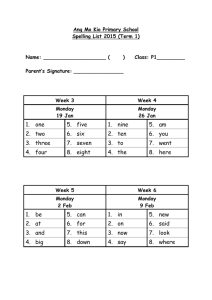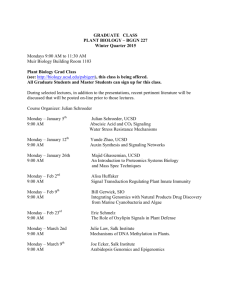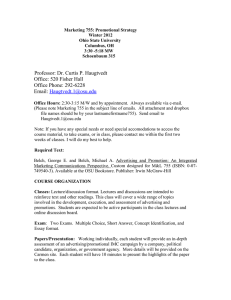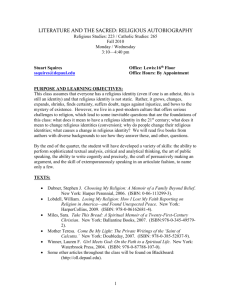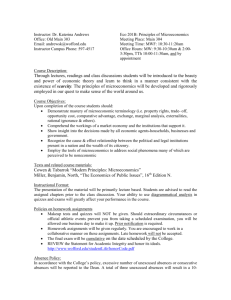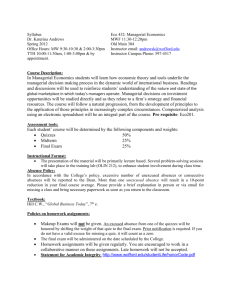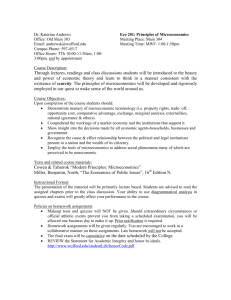Lign 17: Making and Breaking Codes
advertisement
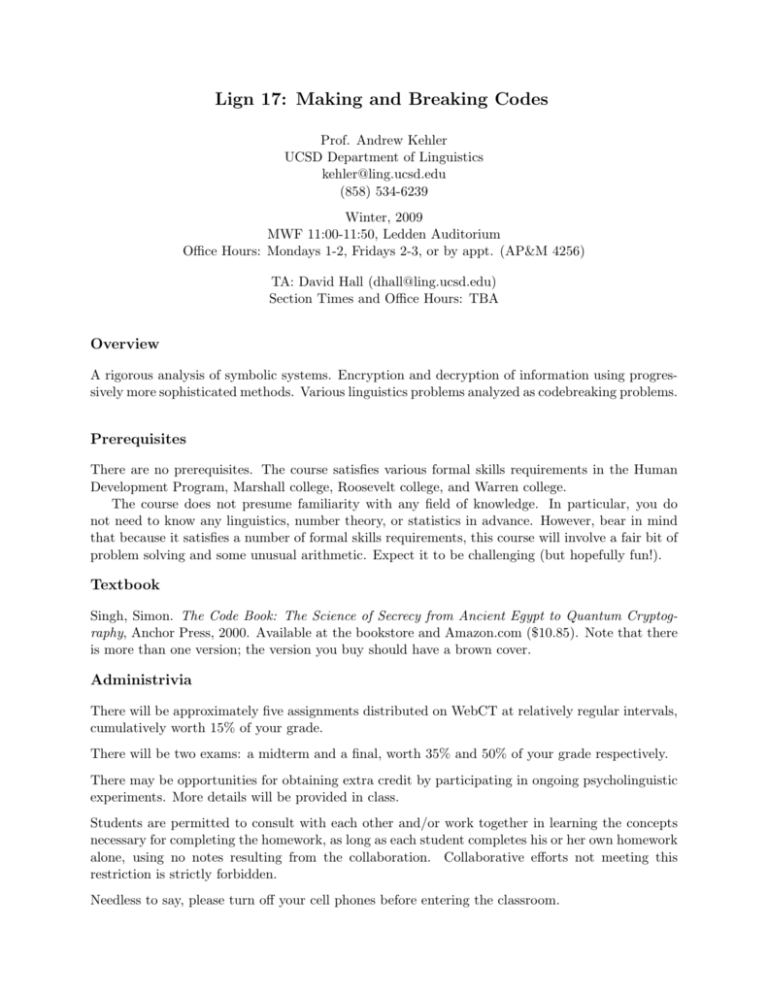
Lign 17: Making and Breaking Codes Prof. Andrew Kehler UCSD Department of Linguistics kehler@ling.ucsd.edu (858) 534-6239 Winter, 2009 MWF 11:00-11:50, Ledden Auditorium Office Hours: Mondays 1-2, Fridays 2-3, or by appt. (AP&M 4256) TA: David Hall (dhall@ling.ucsd.edu) Section Times and Office Hours: TBA Overview A rigorous analysis of symbolic systems. Encryption and decryption of information using progressively more sophisticated methods. Various linguistics problems analyzed as codebreaking problems. Prerequisites There are no prerequisites. The course satisfies various formal skills requirements in the Human Development Program, Marshall college, Roosevelt college, and Warren college. The course does not presume familiarity with any field of knowledge. In particular, you do not need to know any linguistics, number theory, or statistics in advance. However, bear in mind that because it satisfies a number of formal skills requirements, this course will involve a fair bit of problem solving and some unusual arithmetic. Expect it to be challenging (but hopefully fun!). Textbook Singh, Simon. The Code Book: The Science of Secrecy from Ancient Egypt to Quantum Cryptography, Anchor Press, 2000. Available at the bookstore and Amazon.com ($10.85). Note that there is more than one version; the version you buy should have a brown cover. Administrivia There will be approximately five assignments distributed on WebCT at relatively regular intervals, cumulatively worth 15% of your grade. There will be two exams: a midterm and a final, worth 35% and 50% of your grade respectively. There may be opportunities for obtaining extra credit by participating in ongoing psycholinguistic experiments. More details will be provided in class. Students are permitted to consult with each other and/or work together in learning the concepts necessary for completing the homework, as long as each student completes his or her own homework alone, using no notes resulting from the collaboration. Collaborative efforts not meeting this restriction is strictly forbidden. Needless to say, please turn off your cell phones before entering the classroom. Provisional Schedule I. Course Overview (Monday, Jan 5) II. Introduction to Codes and Ciphers (Wednesday, Jan 7 – Wednesday, Jan 14) Reading: Singh, Chapter 1 Friday, Jan 9: CLASS CANCELLED III. More Advanced Ciphers, and How to Crack Them (Friday, Jan 16 – Monday, Jan 26) Reading: Singh, Chapter 2; Chapter 3 (pp. 115-124 only) Monday, Jan 19: Happy Martin Luther King Day! IV. Number Theory, Protocols, and RSA (Wednesday, Jan 28 – Friday, Feb 6) Reading: Singh, Chapter 6 V. Probability, Randomness, Information Theory, and Compression (Monday, Feb 9 – Monday, Feb 23) Reading: To be distributed Friday, Feb 13th: Midterm Exam Monday, Feb 16th: Happy President’s Day! VI. Error Detecting Codes (Wednesday, Feb 25 – Wednesday, March 4) Reading: To be distributed VII. Language Modeling and Its Applications (Friday, March 6 – Wednesday, March 11) Reading: To be distributed VIII. Summary and Review (Friday, March 13) Final Exam: Monday, March 16, 11:30-2:30

